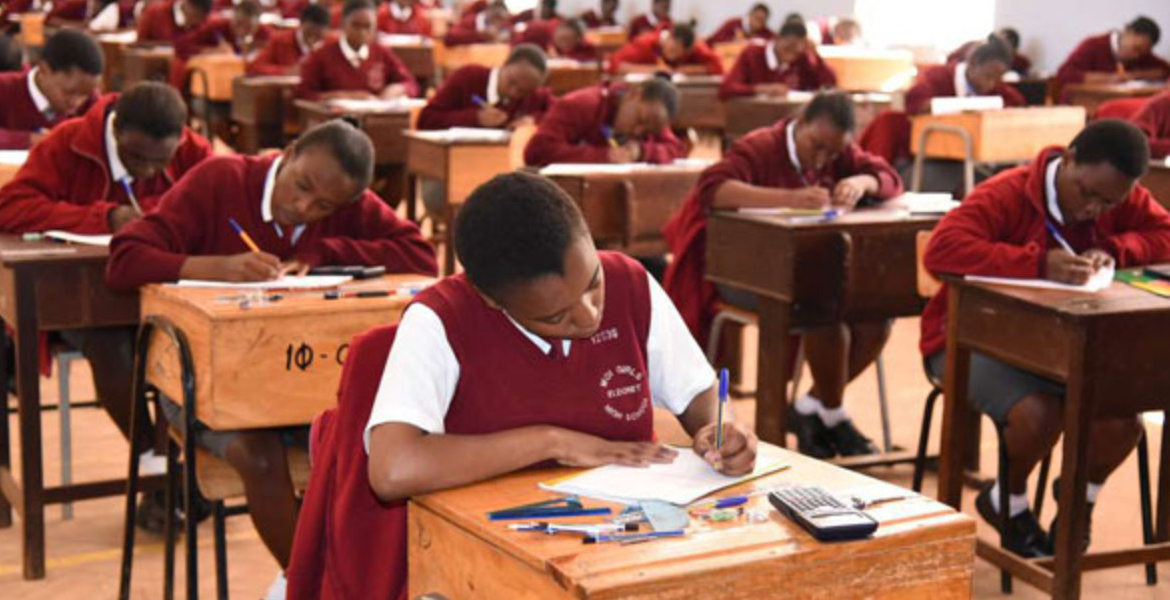Kenya Diverts Sh5.9B in School Funds to Cover National Exam Costs

Kenyan lawmakers have reallocated Sh5.9 billion from school capitation funds to address a critical shortfall in financing for national examinations.
The decision, embedded within the larger Sh4.2 trillion 2025/2026 Budget, is aimed at ensuring the smooth administration and invigilation of examinations, but has raised concerns about the potential impact on vulnerable students. The reallocation, spearheaded by the National Assembly's Budget and Appropriations Committee (BAC), will see reductions across various levels of education: Sh3 billion from secondary schools, Sh2 billion from junior schools, and Sh900 million from primary schools.
These cuts could affect thousands of students who depend on government subsidies for their education. The necessity for this reallocation arose from the lack of an initial budget allocation for examination administration, placing the education sector in a precarious position. Addressing the BAC, National Assembly Education Committee Chair Julius Melly emphasised the critical nature of securing resources for examinations, characterising them as "a national security matter."
Melly notes that previous funding gaps had been covered through supplementary budgets, underscoring the need for a more structured financial plan for examination cycles. Capitation funds play a crucial role in ensuring that learners, particularly those from low-income families, can access quality education without financial obstacles. The Free Primary Education program currently allocates Sh1,420 per primary school student annually, while junior school learners receive Sh15,042. Secondary school students previously benefited from Sh22,244 annually, but this has been reduced to approximately Sh15,000 following recent adjustments.
School administrators have voiced concerns about the adequacy of current allocations, citing discrepancies between student enrollment figures and capitation disbursements. They argue that these inconsistencies have led to insufficient funding, exacerbating financial strain on institutions already struggling with limited resources.
While education has experienced budget reductions in some areas, other initiatives have received increased financial support. The BAC has proposed an additional Sh50 million for educational assessment resource centres, Sh100 million for Special Needs Education capitation enhancement, and Sh400 million for secondary school infrastructure development. Furthermore, the Kenya Institute of Curriculum Development will receive a Sh200 million boost, and public participation projects have been allocated an additional Sh219 million. However, the committee has recommended slashing Sh250 million initially designated for ICT integration in secondary schools, while directing Sh100 million toward teacher training colleges' infrastructure development. The university education sector also faces significant funding reductions. MPs have suggested cutting Sh1.8 billion, including Sh1.3 billion from the fund supporting government-sponsored students in private universities, Sh250 million from the University of Eldoret's engineering complex project, and Sh250 million from the Open University.
However, Rongo University and Jaramogi Oginga Odinga University will receive increases of Sh100 million and Sh125 million, respectively, for infrastructure expansion. One of the notable budget revisions involves a proposed Sh2.1 billion allocation to transition 8,570 universal health coverage (UHC) workers to permanent employment, a measure designed to enhance public service delivery and professional stability. The BAC acknowledged that employment insecurity within the health sector has remained a pressing concern, particularly for UHC staff, intern teachers, and medical doctor interns.
The committee's report emphasises that stabilising these employment arrangements would contribute to economic productivity and workforce development. Additionally, Sh5 billion has been designated to fund UHC staff gratuity payments upon the expiration of their contracts in May 2026. While several government institutions face budget constraints, security-related sectors have received mixed allocations. The National Police Service (NPS) and the National Intelligence Service (NIS) were notably left out of the budget for personnel recruitment.
Consequently, funding requests for Sh3.5 billion to recruit 10,000 police constables and Sh2 billion for NIS staff intake will be deferred to a supplementary budget if economic conditions improve. Further limitations affect NPS, which had sought Sh9.8 billion for insurance procurement, Sh8.1 billion for security operations, and Sh767 million to clear pending bills. On the other hand, the Ministry of Defense secured an additional Sh13 billion atop its Sh200 billion allocation. The increase includes Sh2 billion for new recruit enlistment, Sh5 billion for operations in Somalia, and Sh6 billion for domestic security efforts.
The budget adjustments extend beyond education and security, touching on crucial agricultural initiatives. Sh10 billion has been allocated for the fertiliser subsidy program, while Sh5.53 billion will support sugar industry reforms. Additional funding includes Sh4.5 billion for tea sector restructuring, Sh2 billion for the Strategic Food Reserve, and Sh1.7 billion for the seed subsidy program. However, the Agricultural Finance Corporation, critical for providing affordable credit to farmers, was denied its Sh1.5 billion request, raising concerns about the potential impact on agricultural financing.








Add new comment